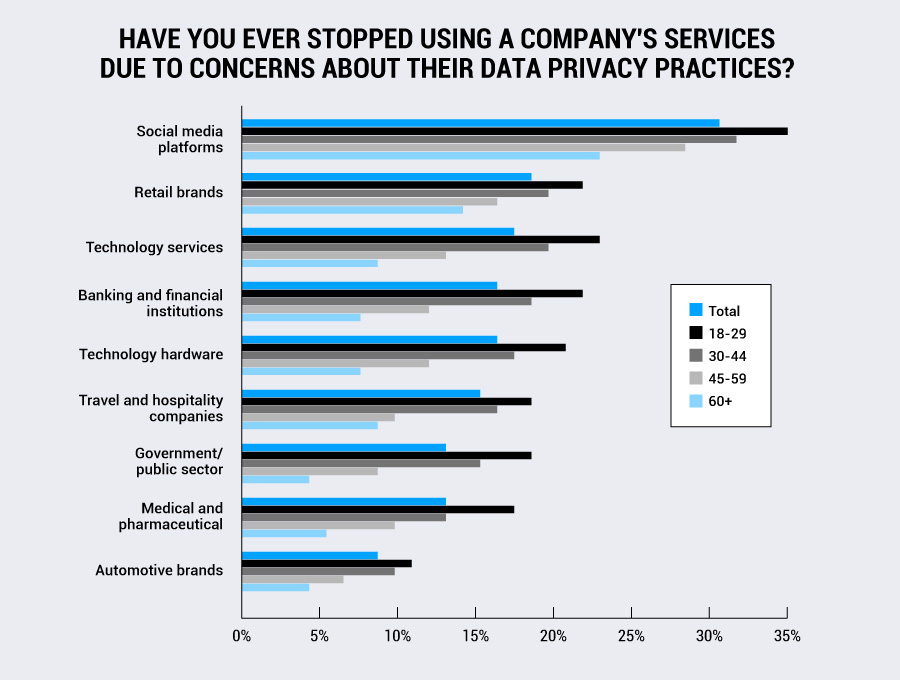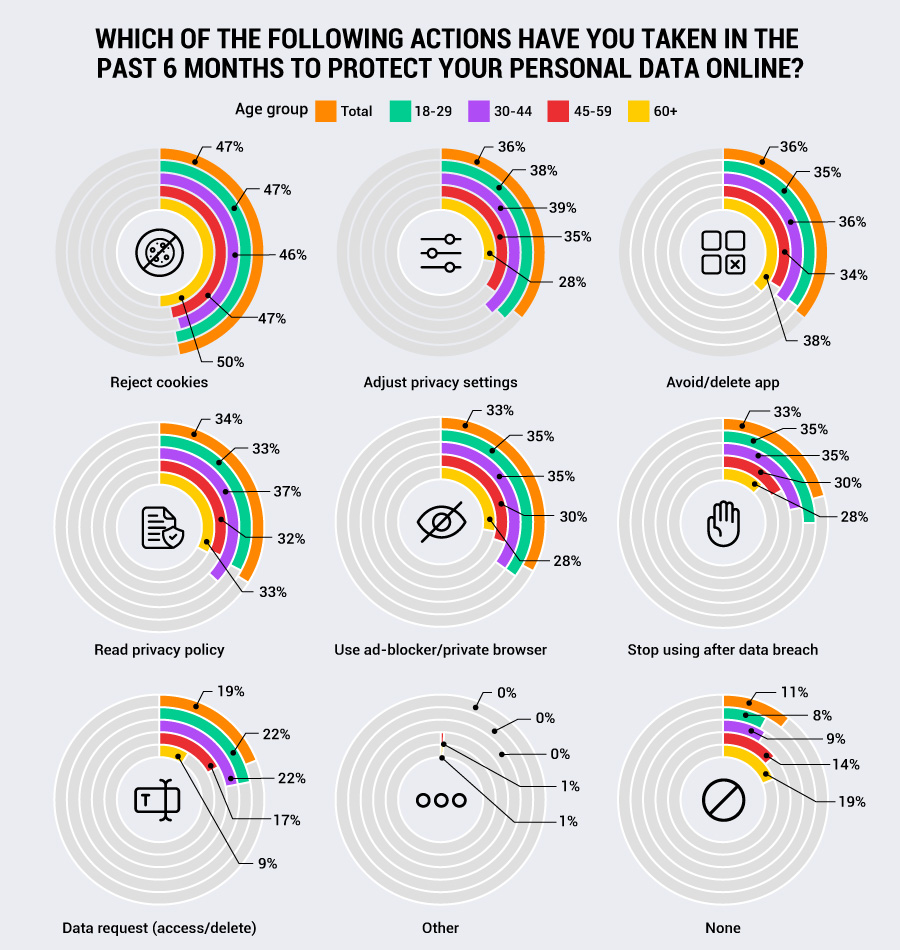Privacy is no longer optional — at Usercentrics, we consider it the 9th P of marketing. That will be increasingly true for any brand that wants to grow its customer relationships sustainably.
Here’s why: Our ground-breaking State of Digital Trust report, released in 2025, revealed that 62 percent of consumers feel they’ve become “the product” in the digital economy. Many consumers are uneasy about how their data is used to target them online.
At the same time, Gen Z is redefining what trust and transparency mean for brands, and their take is more nuanced. Marketers who want to future-proof their digital brand, take note!
When we break down the data across age groups, we find a critical difference:
- While 74 percent of Baby Boomers feel they’ve become the product, only 51 percent of Gen Z agree.
- For younger consumers, convenience often outweighs concern: 41 percent say online ease is worth the trade-off, compared to 29 percent of Boomers.
- At the same time, 41 percent of Gen Z say they would be more likely to trust a company with their data if given clear explanations of how it’s used.
Gen Z’s responses aren’t in conflict — they reflect the realities of growing up online. And there’s a clear way for brands to bridge the gap. Transparency is Gen Z’s currency of trust, and it will define the next decade of marketing.
Gen Z skepticism is on the rise
The group of people aged between 18–29 today are often called ‘digital natives.’ But Gen Z consumers aren’t naive: As the first generation to come of age in a world with their online personas under watch, they know their data is valuable. By the time this generation started making social media handles, the modern mar-tech stack enabled hyperpersonalization that many in Gen Z are calling ‘creepy’ or ‘cringe.’
This generation has the numbers and the awareness to shape how companies behave. They’ve abandoned Facebook in droves, citing irrelevant ads, misinformation, and low trust. What’s more, our survey shows that 35 percent of Gen Z have stopped using a social media service due to concerns over data privacy, the highest share of any age group, including millennials, Gen X, and Baby Boomers.

It’s clear that Gen Z is inherently aware of data collection online, and in some cases, they’re disengaging. But under the right circumstances, they will actively consent to sharing their data.
The question is, how to create the right conditions?
Younger consumers pine for personalized experiences
Gen Z will click away from experiences that give them the ick — and these decisions are made quickly, sometimes within a few seconds of landing on your website.
Across age groups, Gen Z is the most active in rejecting cookies, using ad blockers, and refusing to buy from companies after breaches. In fact, only 8 percent say they’ve never taken such protective actions, compared with 19 percent of Boomers.

But there’s a silver lining. Gen Z isn’t against sharing data altogether — they embrace personalization that is built on the data they choose to give, like the zero-party and first-party data that’s at the cornerstone of privacy-first brands. TikTok’s tailored feeds, despite privacy controversies, remain wildly popular with Gen Z for discovery and creativity.
This openness extends to AI:
Usercentrics found that 21 percent of Gen Z are comfortable with their data training AI models compared to 10 percent of Boomers. More than one-fourth (26 percent) even say they trust AI more than humans. For this generation, when personalization is done right, it strengthens brand loyalty.
In fact, it makes all the difference between keeping Gen Z engaged versus just passively involved.
Our research shows that 36 percent of Gen Z are very or somewhat comfortable with companies using their data to improve experiences, and 54 percent don’t mind brands that they regularly engage with collecting anonymized data if it enhances personalization.
This gives younger consumers the context to understand their online experiences, instead of writing them off as uncanny.
Transparency is the differentiator
By 2030, the spending power of Gen Z is projected to hit USD 12 trillion, making them impossible to ignore. We talk a lot about how this generation is reshaping marketing channels, content, and data practices, but today, its members are merely tolerating the too-personal marketing coming at them from all directions.
Gen Z craves authenticity, novelty, and clarity about how their data is used. But while there are tons of guides advising brands on how to create catchier content, transparency is the key differentiator — it’s the factor most likely to make Gen Z consumers say, ‘Hm, that was unexpected.’
Of course, it’s easy to talk the talk about trust online. Brands that want to walk the walk — and grow with their customers — aren’t just name-dropping transparency. They’re making it a core value, starting with a clear privacy policy.
Marketers can lay the foundation by adopting Privacy as the 9th P of your marketing framework. It’s no longer just Product, Price, Place, Promotion, People, Process, and Physical evidence, and Performance — it’s Privacy that will determine whether your brand earns the trust of Gen Z, and the generations that come after.

